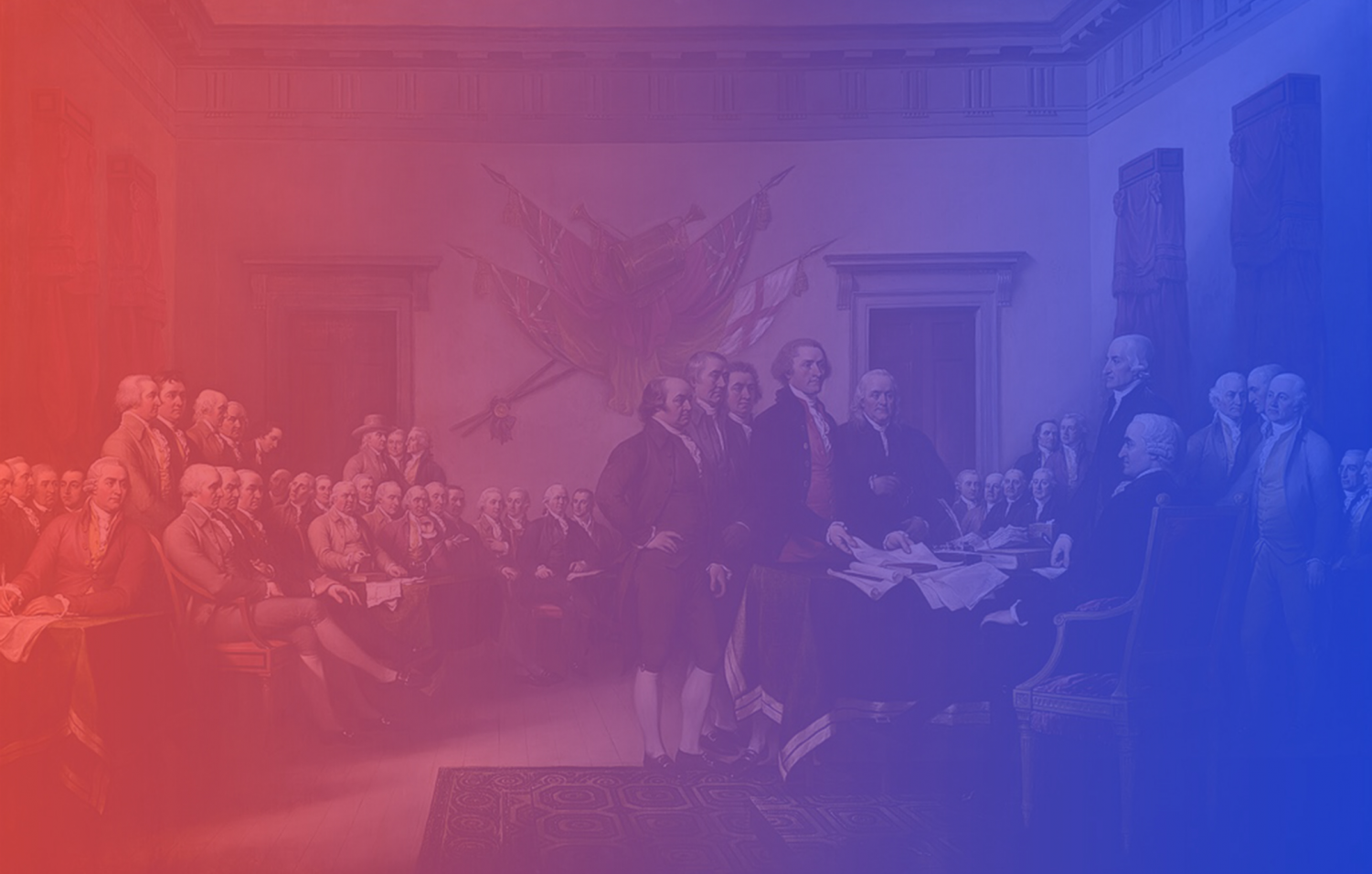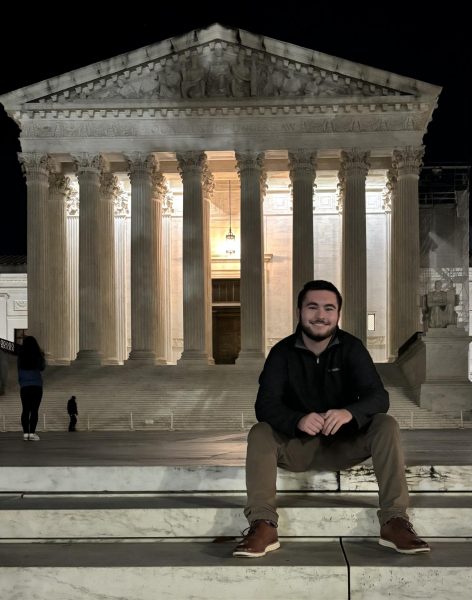Democracy. For real.
What’s wrong with American democracy today?
We’re all familiar with that kid (or, apparently, U.S. Sen. Mike Lee?) in our high school civics class who so courteously reminds us that “actually, America isn’t a democracy. It’s a republic.” And while that overly narrow and obnoxiously pedantic distinction might technically be true in some sense. Saying that America is not a democracy is, as political scientist Ed Burmila puts it, “as useful as pointing out that it is not a monarchy.”
Purveyors of the “republic not democracy” argument often point to James Madison’s Federalist 10 as evidence. But if they actually read the document, they might see where they’re wrong.
Democracy, at the time of the founding, was understood strictly to describe the type of government that the Athenian city-state once practiced. That is, a direct democracy. It was a system of government where, as Madison himself defined it, the entire citizenry “assemble[d] and administer[ed] the government in person.”
If that’s the definition of democracy we’re working with, then of course we aren’t a democracy! Neither is any other country in the world, for that matter. The “republic not democracy” distinction is totally meaningless. Of course the founders didn’t envision every citizen coming to Washington to cast their vote on each individual issue facing the nation. But that doesn’t mean that they didn’t envision what, by any modern standard, we would call a democracy.
The modern conception of democracy is characterized simply as self-rule. The literal dictionary definition of democracy, according to Merriam-Webster is “a government in which the supreme power is vested in the people and exercised by them directly or indirectly through a system of representation usually involving periodically held free elections.” Under that definition –– the only plausible modern definition –– it’s preposterous to say America is not a democracy. Democracy and republic are not mutually exclusive words. What we have is a republican system of governance chosen by representative democracy. A democratic republic.
So, if we are so clearly a democracy, then why do folks like Mike Lee incessantly claim that we aren’t? Well because, in many respects, we actually aren’t. Or perhaps, more precisely, they don’t want us to be. Confused? Me too. Keep reading …
Madison and the other Founding Fathers were terrified of mob rule and factionalism. They worried that factions with similar interests would join together and oppress minority factions, so they dreamt up a constitutional system with significant checks on the will of the majority. The legacy of Madison’s vision lives on in America’s lasting undemocratic institutions. Most prominent among these are the United States Senate and the Electoral College, both of which create nonproportional governance. These undemocratic features, while in theory create a fairer government, have done just the opposite in practice.

In the 2016 presidential election, about 2% more Americans voted for Hilary Clinton than Donald Trump. However, because of the Electoral College, Trump became president. Disturbingly, the lopsidedness of the presidential election pales in comparison to that of the Senate. In 2018, Democratic Senate candidates received a stunning 17.5 million more votes, 19.6%, than did Republicans, and yet the Republicans retained a majority in the chamber. In a system where California, with its 39 million residents, gets the same number of senators as Wyoming, with its 500,000 residents, a result like this is hardly surprising.
I’ll concede, for the moment, that in the interest of preventing a tyranny of the majority, it is fair and good that minority factions receive some outsized voice in the process. But what cannot be fair, and what Madison could not have envisioned, is Republican (capital “R”) leaders abusing the systemic advantages they have as the minority party, making it nearly impossible that they would ever again lose power.
This abuse of power is most clearly visible in three areas today: gerrymandering, the Supreme Court and voter suppression.
In 2010, a brutal year for Democrats electorally, Republicans gained control of state legislatures across the country. 2010 was also the most recent year states re-drew their congressional districts. The Republicans used this conveniently newfound power to draw maps that deeply benefited their reelection odds. And, sure, Democrats did the same thing in many states they controlled too. But analysis after analysis has shown that gerrymandering has benefited Republicans much more than Democrats.
The second abuse of power is encapsulated by the slow-motion trainwreck occupying the U.S. Senate right now. I refer, of course, to the nomination of Judge Amy Coney Barrett to the Supreme Court. For anyone lucky enough to be unacquainted with the details, Republicans are currently jamming a Supreme Court nomination through in hopes of having Barrett on the Court by election day. For the record, I see nothing wrong with this per se. The Senate and the president are elected for their full term and, until they are replaced, I see no problem with them acting like it.
The abuse, rather, occured when Republicans unilaterally blocked the Democrats from doing the same thing in 2016. They neglected their obligation to consider President Barack Obama’s nomination and vote on the merits of his nominee. Their hypocrisy in blocking a Democrat’s nomination and then pompously walking Trump’s nominee through the process is an egregious flouting of the rule of law and American constitutional principles.
The final abuse is Republicans’ aversion to easy access to the ballot. Republicans across the country have consistently tired to make it harder for people to vote. From strict voter ID laws to the recent litigation attempting to keep states from counting mail-in ballots, it’s clear Republicans are trying to make it harder to vote. Why? Because more of the country leans Democratic than Republican. The fewer people who vote, the better Republicans do electorally.
As Matthew Yglesias argued in Vox recently, these abuses are self-reinforcing. A president, elected by a minority of the population, sends a nominee to a Senate, representing a minority of the country, in an attempt to fill the Court with justices subscribing to an ideology most of the country doesn’t agree with. The Court would then uphold Republican attempts to keep people from voting and drawing unfair congressional districts, sending even more Republicans to Washington, where they can continue to make minoritarian advances.
Do you see the problem here? It’s a cycle of constitutional abuse — never actually breaking any laws, but always flouting every democratic norm we have.
As commentator David Frum put it, as fewer Americans subscribe to the Republican’s staunch conservatism, instead of moderating their views and expanding their base of support, Republicans try to shrink the electorate.
These anti-democratic impulses contribute to a government that increasingly looks less like the country it represents. It’s why it seems like we can never get anything done, never enact real change. It’s why, even when a large majority of Americans want stricter gun control, nothing changes. It’s why, while the vast majority of Americans want police reform, congress sits on its hands.

These anti-democratic impulses of the modern Republican Party are not new, but they’ve become undeniable with Trump’s presidency. As his reelection odds grow dimmer and dimmer, he refuses to commit to a peaceful transfer of power, and instead, he attacks mail-in voting during a pandemic. He knows the country doesn’t agree with his hateful policies and rhetoric, so he does what Republicans have done for years: turns to the undemocratic elements of our democratic republic.
We are, at our roots, a deeply democratic country, but a deeply democratic country that held slaves for its first hundred years. The American conception of democracy was always flawed, but it doesn’t have to be. The Mike Lees and the Donald Trumps and Mitch McConnells of the country insist that we are “a republic not a democracy” because they thrive on these undemocratic flaws.
These flaws have kept them and their friends in power for centuries and oppressed people of color for even longer. The undemocratic elements of our country have kept elites insulated from the people since the founding. And sure, to some degree, that’s worthwhile in the interest of preventing mob rule. But it’s gone too far. Republicans have gone too far.
It doesn’t have to be like this. Our democratic roots run deep. So let’s embrace them like the Founders did, but this time, let’s embrace them for everyone. Let’s embrace honesty and decency and good faith politics. Let’s embrace the radical idea that all men and women are created equal, and that government ought to be of, by and for the people. But, this time, let’s embrace it for real.
Honesty, decency and good faith politics are on the ballot this November. Vote.







